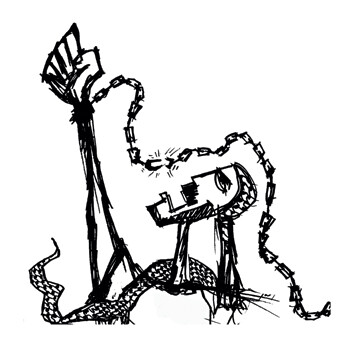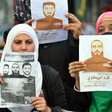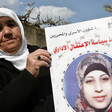San Francisco, United States 9 July 2008

I wasn’t really surprised by the watchdog group Physicians for Human Rights-Israel’s (PHR-I) latest intervention to Israel’s health ministry, in which they accused Israeli doctors of complicity in the torture of Palestinian detainees in Israeli interrogation centers. Indeed, it sounded all too familiar to what I experienced during 550 days of incarceration in a South African prison from 1990 through 1992.
PHR-I reached its conclusion based on the testimony of two Palestinian prisoners who were tortured during interrogation and developed trauma-related symptoms including hearing loss, panic attacks and incontinence. The doctors who treat Palestinian detainees conduct medical checkups on the prisoners during and after interrogation but they fail to report the findings and symptoms, which make them an actor in the torturing of detainees, PHR-I said.
The report about those tortured Palestinian detainees leads me to recall my own experience. I returned to South Africa following the release of Nelson Mandela after he served 27 years in apartheid prison. I chose to go back to the birthplace of my activist father, the land that I grew up in for the first eight years of my life, and the place where my older brother was shot and killed right in front of me when I was just five years old.
Four days after I arrived in the country, the police picked me up off a dusty road in the township known as Soweto (South West Township) for violating a curfew. The ensuing one-and-a-half years of detention drove me to the brink of insanity. I was subjected to prolonged and at times violent interrogations. Some merely involved endless hours of questions and answers, and nearly all consisted of some form of torture, extreme heat and cold, having to stand or squat in a certain position for hours on end naked, sleep deprivation (their personal favorite to use on me), and being punched in my face and body.
I don’t remember too many instances in great detail — mostly I’ve blocked them out of my mind — but I can recall one that reminds me of the testimony of the two Palestinian detainees that testified to PHR-I.
One particular incident probably happened after I had been in custody for well over six months. I had gone through a number of interrogations, but had told my jailers nothing, simply because I had nothing to tell. My inquisitor looked on at me with a stone-face and said, “Look kaffir [nigger], make it easy on yourself and just confess that you’ve got dealings with those communists in the ANC youth league.” I looked on, non plussed. I didn’t have dealings with the African National Congress youth league because I wasn’t a member; I belonged to AZAPO, the Azanian People’s Organization, a Black Consciousness group, and proudly told my jailer so.
I can’t recall the first blow, or the second, but over time I remember that my left eye was beginning to close and that it felt as if my right eye was about to fall out of the socket. At the moment when I thought it was all over, my inquisitor stopped. As I lay on the ground gasping for air, pools of blood were forming near my mouth and eyes as I lay face down. Then I blacked out.
I awoke in my cell but couldn’t see very well as my eyes were swollen shut. But I could feel soft hands tending to me, then a voice that I hadn’t heard before spoke too me. “Lay still I need to check your bandages,” a man said, speaking with a thick Afrikaans accent. “Who are you?” I asked. “I’m one of the doctors here at the prison. Just lay still, you’re going to be alright.” Desperate to tell him what had happened too me I tried to give an account of all that had gone on in the torture session. Expecting him to respond, all I heard was silence.
Surely, I thought to myself, this was because he was trying to process how such a thing could happen. Indeed he would be outraged that the security police would behave in such a manner to either the innocent or guilty. But the silence continued. I heard nothing from him. Finally, I spoke up: “Please, you have to help me, you have to file a report. Let someone know what they are doing to us in here!”
“I can’t do anything for you,” he said matter-of-factly. And with that he gathered his medical bag and left my cell.
I never did see him again.
During the Truth and Reconciliation Hearings that were chaired by Nobel Peace Prize Laureate Archbishop Desmond Tutu, those who took part in the crimes of apartheid were asked to confess what they had done. Several doctors came forward and testified that they had been present at numerous torture sessions of Black South African political detainees who died in detention and had falsified records to cover up these murders, as well as countless torture sessions during which suspects hadn’t died — like me. Some recounted how they had failed to uphold the Hippocratic oath of doing no harm to others.
I wonder to this day if the doctor that treated me in my cell confessed before the truth commission in South Africa. Likewise, I will wonder if the physicians that PHR-I accused of complicity in torturing Palestinian prisoners will one day confess their crimes.
Naji Ali is the producer and host of Crossing The Line: Life in Occupied Palestine. He is the son of a Black South African resistance fighter. Ali spent 550 days in detention in South Africa and was subjected to repeated torture by the security police. He also lived and worked in Palestine in the Old City of Hebron from 2002-2004. HE can be contacted at Naji Ali A T riseup D O T net.


